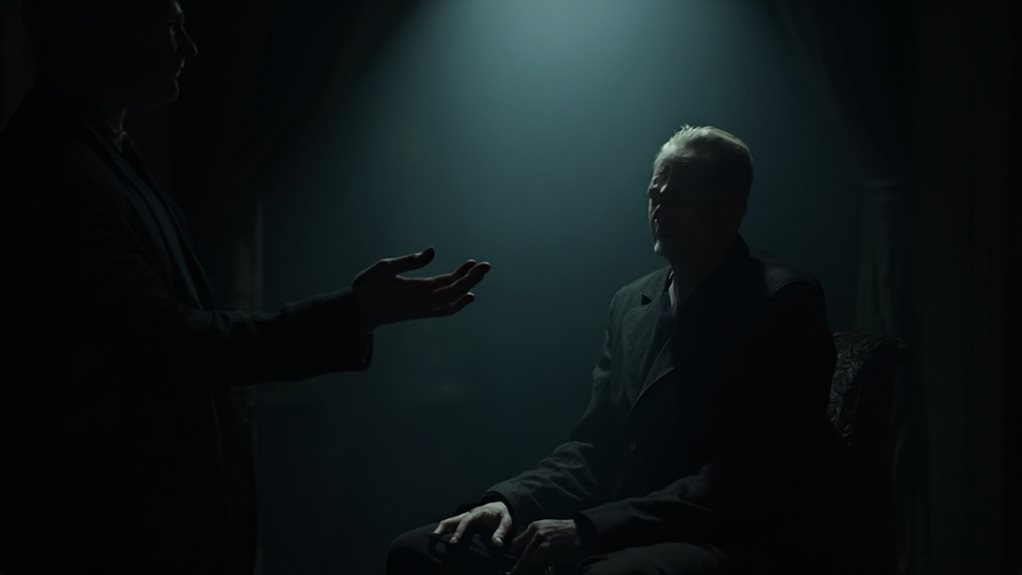
The efficacy of hypnosis in enhancing memory remains controversial within the scientific community. Studies have shown mixed results, with many findings lacking replicability or demonstrating only placebo effects. The suggestive nature of hypnosis can sometimes lead to altered or even false memories. Additionally, methodological flaws in research further fuel the debate. Understanding these complexities might offer deeper insights into the true capabilities and limitations of hypnosis in memory manipulation.
Key Takeaways
- Hypnosis has not been reliably proven to enhance memory, often showing mixed results comparable to placebo effects.
- The scientific community remains skeptical about hypnosis for memory enhancement due to lack of replicable findings.
- Hypnosis may lead to the creation of altered or false memories, undermining its credibility in accurate memory retrieval.
- Memory accessed during hypnosis can often be confabulated, raising concerns about its use in legal and clinical settings.
- Hypnosis does alter consciousness but has not been conclusively shown to improve the accuracy or reliability of memory recall.
The Science Behind Hypnosis and Memory Enhancement
Despite the intriguing proposals put forth by proponents of hypnosis, the scientific community remains skeptical about its efficacy in enhancing memory.
Research examining hypnosis techniques in memory retrieval has yielded mixed results, with no definitive evidence supporting significant improvement. Most studies focus on the ability of hypnosis to access forgotten experiences, yet these findings often lack replicability or fail to surpass placebo effects.
Critics argue that the suggestive nature of hypnosis may lead to altered or false memories rather than genuine recall.
In addition, methodological flaws in experimental designs contribute to the ongoing debate on the reliability of hypnosis in memory enhancement.
Unraveling the Myth of Photographic Memory
The concept of photographic memory, often depicted in popular culture as the ability to recall images, texts, or events in great detail, remains a topic of fascination and skepticism.
Scrutiny into this phenomenon reveals that photographic memory, as commonly portrayed, largely aligns with memory myths rather than empirical evidence.
Scientific investigations consistently demonstrate that human memory is far more complex and fallible, involving processes of reconstruction and selective retention.
Claims of photographic memory typically lack rigorous validation, suggesting that what is often celebrated as photographic memory may be more accurately described as a mix of keen observation skills and cognitive structuring.
The Role of Incidental Learning in Memory Formation

Incidental learning, whereby individuals acquire knowledge unintentionally through everyday experiences, plays an essential role in the formation of memories.
This type of learning occurs without deliberate attempts to memorize information, often leading to more durable memory retention. Research illustrates that incidental learning mechanisms are deeply intertwined with daily sensory exposures that individuals may not actively seek to remember.
These unintentional acquisitions are critical for spontaneous memory recall, making them significant for long-term cognitive preservation.
Historical and Scientific Scrutiny of Hypnosis
While hypnosis has long been portrayed in popular media as a powerful tool for accessing hidden memories, rigorous scientific scrutiny raises substantial doubts about its effectiveness.
Tracing back through hypnosis history, numerous studies have questioned the reliability of memories recovered under hypnosis, suggesting they are often confabulated or distorted.
Experts argue that while the technique might alter the state of consciousness, it does not reliably enhance memory accuracy.
The scientific community remains skeptical, emphasizing that memory is a reconstructive process susceptible to suggestion.
Consequently, hypnosis is viewed critically when used for retrieving memories, particularly in legal or clinical settings.
Key Factors That Influence Memory Acquisition and Retention

Understanding the factors that influence memory acquisition and retention is essential, as these elements play a crucial role in how individuals gather, store, and retrieve information.
Environmental cues often act as triggers, enhancing the recall of specific memories by creating associative links during the encoding process.
Similarly, emotional states greatly affect memory performance; intense emotions can either strengthen memory retention through heightened attention and engagement or impair it by causing cognitive overload.
Research indicates that both factors are integral to understanding the complex mechanisms of memory, suggesting that strategies to improve memory should consider the optimization of emotional conditions and environmental contexts.
Frequently Asked Questions
Can Hypnosis Improve Memory Recall in Individuals With Amnesia?
Research on hypnosis for amnesia recovery provides limited evidence that it enhances memory recall. Memory techniques based on empirical studies suggest alternative methods may be more effective for individuals with amnesia.
What Are the Potential Risks of Using Hypnosis for Memory Enhancement?
Exploring the labyrinth of the mind, the use of hypnosis for memory enhancement harbors ethical concerns, particularly the risk of implanting false memories, challenging the integrity and reliability of recollections in both therapeutic and legal settings.
How Does Hypnosis Compare to Meditation in Enhancing Memory?
Comparing hypnosis to meditation in memory enhancement, evidence suggests meditation may offer more consistent cognitive benefits. Both are memory techniques, yet meditation supports broader neurological health with more substantiated research backing its efficacy.
Are There Age Restrictions for Undergoing Hypnosis for Memory Improvement?
While no universal age restrictions exist for hypnosis, its benefits in memory improvement vary across age groups. Age eligibility considerations guarantee appropriateness and safety, reflecting the need for methodical evaluation of hypnosis benefits in younger populations.
Can Hypnosis Help in Recovering Suppressed Traumatic Memories?
Hypnosis is sometimes used in trauma recovery for memory retrieval, yet scientific evidence does not conclusively support its effectiveness in accurately recovering suppressed traumatic memories, highlighting the need for further research and methodical analysis.
Conclusion
In summary, while hypnosis tantalizes with promises of enhanced memory, the adage "there's no free lunch" resonates strongly here. The scientific scrutiny reveals a complex interplay of factors influencing memory, with hypnosis showing limited definitive benefits. Critical examination alongside emerging research is essential to navigate this field. Therefore, hypnosis, in the spectrum of cognitive tools, may not be a panacea but remains a topic ripe for further investigation and cautious exploration.





